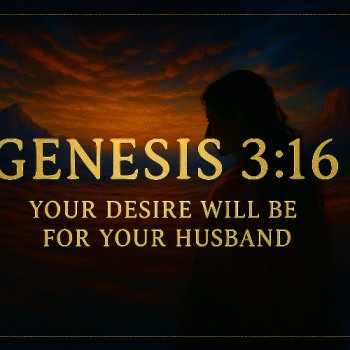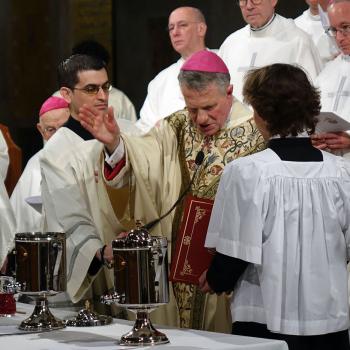I am not sure whether or not these acts of exclusion emanate from our failure to repent. Maybe. Then we would reason something like this: Since we stand by our violence against Muslims in the past, we are justified to perpetrate violence against them today.
My sense, though, is that today's exclusions stems from fear and from the need to generate enemies so that we can justify our own need for violence. Clearly, concern about "creeping sharia" in the United States is absurd; chances that sharia will be implemented in the United States are only slightly better than that Martians will invade. And yet people are really exercised by the perceived threat of Muslims "taking over America." A few exceptions notwithstanding, there is no real enemy to speak of, but people create the enemy. Why? Because they harbor enmity and are plagued by fear and resentment. This is a deeply unchristian stance. We are supposed to love enemies and, if possible, make friends of them; we are not supposed to manufacture enemies so we can have targets for our fears and resentments.
As you indicate, some observers think the solution to Christian-Muslim conflicts is for both to secularize their faith and practice. You argue that the only road to peace is for both to recognize that they serve a common God. Which solution is more likely to occur?
On the global scene, we live in a time of vibrant and politically assertive religions. That holds true above all for Christianity and Islam. No serious commentator believes that this will change in the foreseeable future. The likelihood that Muslims and Christians will secularize their faith and politics is minimal.
As to the recognition that they have a common God, Muslims have always believed that Christians worship the same God as they do. The Quran says: "Our God and your God is one." Christians as well have traditionally believed that Muslims worship the same God as they do. Nicholas of Cusa did. Martin Luther did. The Second Vatican Council did. The debate was about the proper understanding of that one God; in some circles today it has devolved to reciprocal accusations of idolatry. We need to remind ourselves today of the rich tradition on both sides which affirmed the common God, and draw on the political consequences.
How do you understand the relationship between Christianity's triune God and Islam's one God? Can the Christian God be God without the Trinity?
I think that Nicholas of Cusa got it right when he said: Everything that Jews and Muslims deny about the Holy Trinity ought to be denied by every orthodox Christian. For instance, Muslims, like Jews, deny that there are three independent agents in God; Christians who know what they are talking about deny the same thing as well. Those who don't are heretics, to use the traditional language (without advocating traditional means of dealing with heresy!)
Can the Christian God be God without the Trinity? No, God cannot be God without being Triune, because there is and can be only one God, the Holy Trinity. But that is not the disputed issue. The issue, rather, is this: can you worship the true God, who is triune, without knowing that God is triune? The answer is very simple and irrefutable: The Jews have always done just that. Which God do Jews worship? They worship the God of Abraham and Sarah, Moses and David, Isaiah and Hosea. Which God do Christians worship? They worship that same God. And they believe that that God is the Holy Trinity. The Jews worship God without acknowledging God's Trinitarian nature; Christians worship God while acknowledging God's Trinitarian nature. Both cannot be right about God's Trinitarian nature, but both can worship the same God. The same holds true of Muslims.
What advice would you give to a Christian who was reading the Quran for the first time?
If you can, read the Quran with a Muslim and invite that Muslim to read the Bible with you. And then talk about what you are reading—trying first to understand rather than being quick to condemn.





